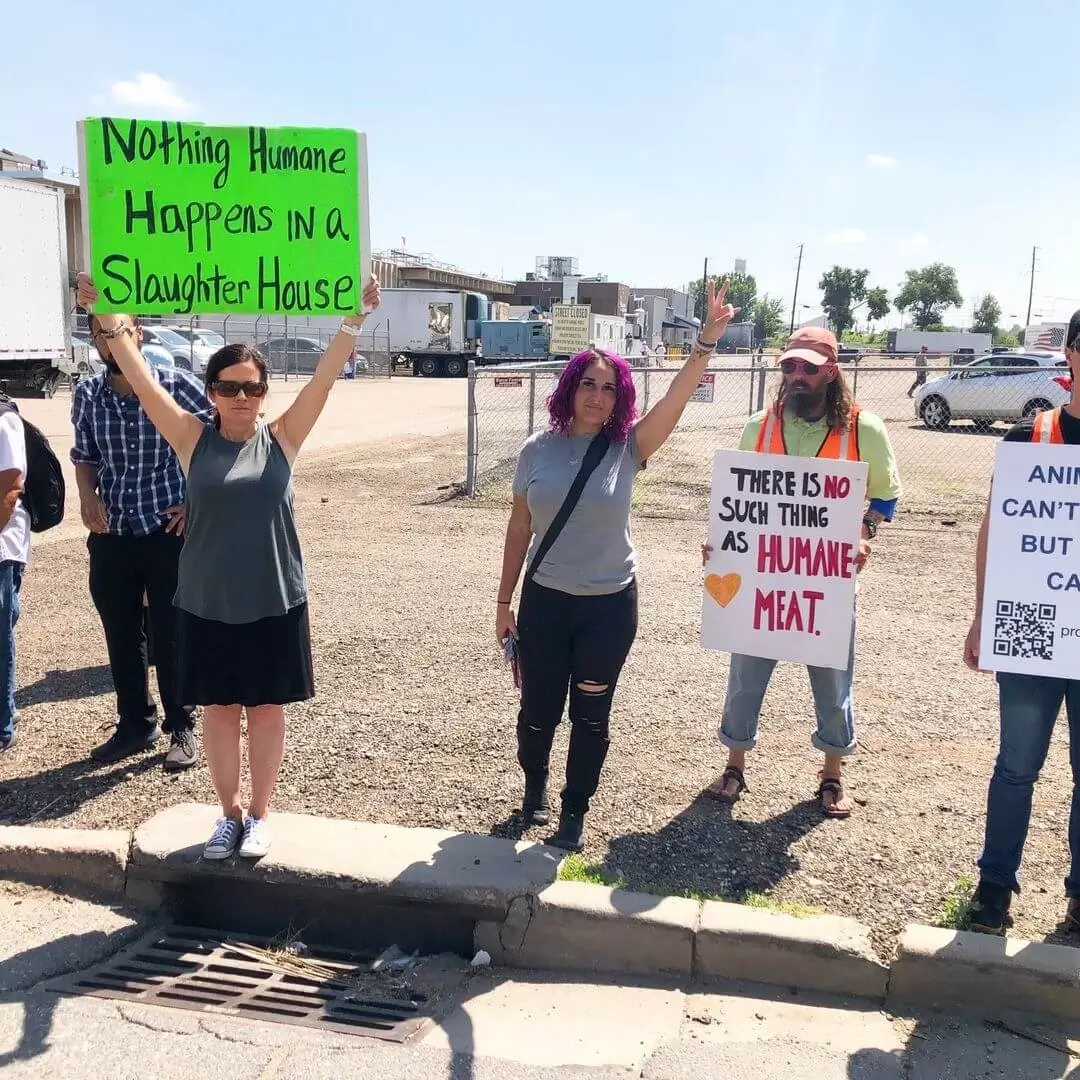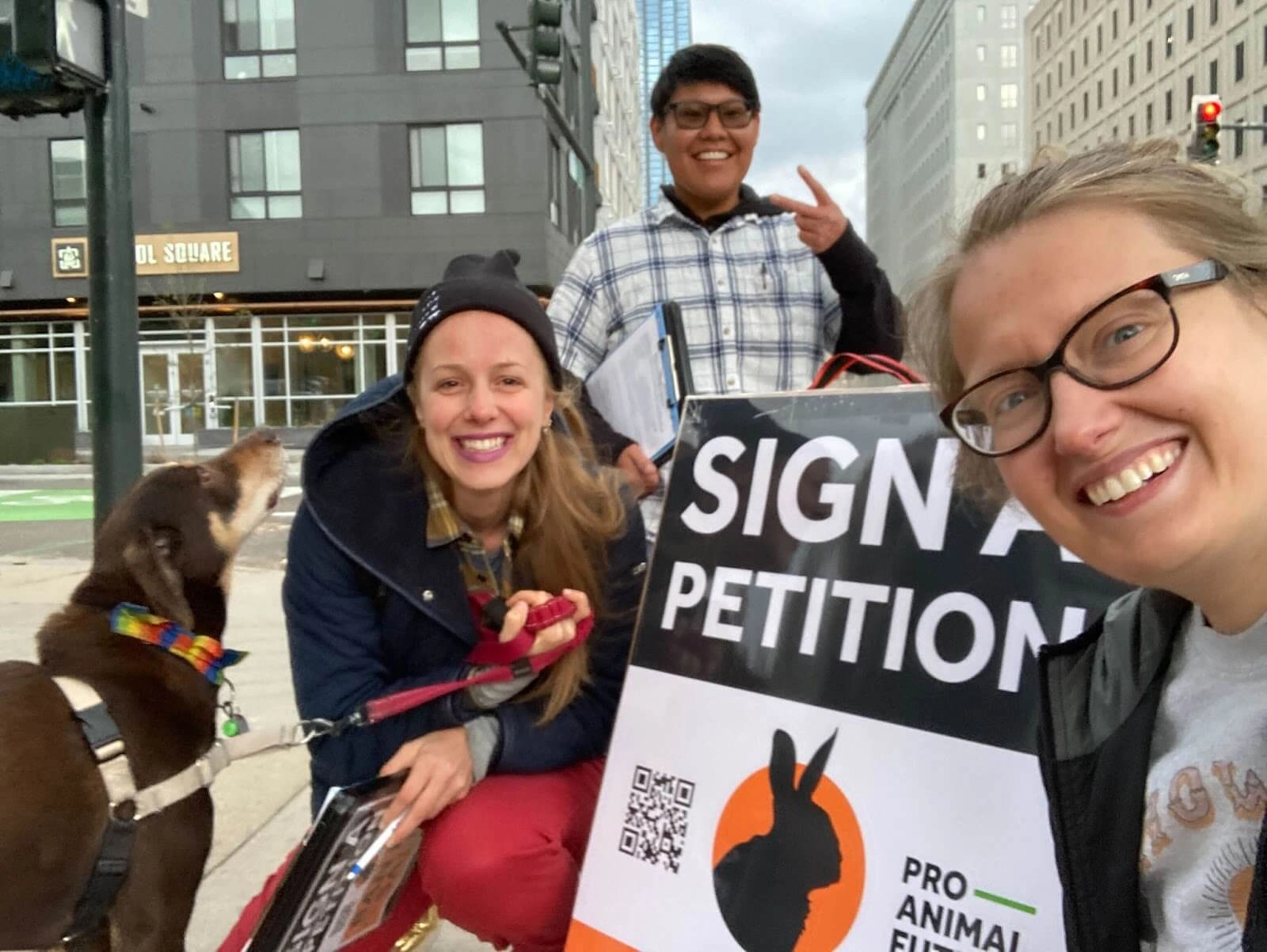Photos available for use here.
A group of Colorado citizens set out in May to qualify two new pro-animal ballot measures. One is a ban on slaughterhouses in Denver and the other would ban the sale and manufacture of fur products in Denver. Already the group has collected 9,000 signatures, putting them over 25% of the way toward their goal and on schedule to get the measures up for vote next November. Standing in front of Denver’s only slaughterhouse yesterday, Pro-Animal Future spokesperson Aidan Kankyoku told a local TV news crew: “Practically everyone in America is opposed to animal cruelty. Amid growing concern for the animals who suffer in factory farms and slaughterhouses, these measures give regular people a chance to stand up for the better future animals deserve.”
The proposed slaughterhouse ban has caused quite a stir, drawing excited reactions from agricultural news outlets. If passed, the initiative would lead to the closure of Superior Farms, Denver’s last remaining slaughterhouse and one of the largest lamb slaughterhouses in the country. Located in Globeville, the facility kills half a million animals per year—mostly baby lambs, with some goats. The company’s other slaughterhouses have been subject to a disturbing undercover investigation. While opponents of the slaughterhouse ban focus on the economic implications, animal supporters say this is exactly the point. “The U.S. government has spent billions on subsidizing animal agriculture, despite plant-based alternatives having 30-90% lower emissions,” said spokesperson Phoenix Huber. “Slaughterhouses pollute neighborhoods. They put workers in the position of killing innocent animals just to pay the bills. Colorado can lead our nation toward a greener economy that prioritizes people’s and animals’ safety over profits.”
The second initiative, which would ban the production and sale of fur in Denver by June 2025, is more modest in that it echoes pre-existing legislation. Boulder and 12 other U.S. cities, plus the state of California, passed similar prohibitions, protecting mink, chinchillas, coyotes, and other animals who are killed primarily for their fur. “Fur farms are notorious for keeping animals in small cages their whole lives. They are deprived of their natural behaviors,” said Aidan Kankyoku. “The availability of alternatives gives us more reason than ever to leave meat and fur behind. It’s a collective change that businesses and consumers have been inching toward for years, but only by rising up as citizens and voters can we win animals the freedom they so urgently need.”
As Denver7 reporter Meghan Lopez put it yesterday, supporters of this initiative “do not believe that animal production is needed anymore to feed Americans, with so many different alternative food sources.” Meanwhile, Denver’s pro-animal community has long borne witness—like they did yesterday—to the sad-looking sheep and goats who are forced to walk inside the local slaughterhouse. “No one likes seeing what happens to animals on fur farms and in slaughterhouses. Compassion is part of being human,” said canvasser Lauren Uram, who volunteers countless hours each week because of her passion for the cause. “We should listen to the empathy we feel and vote to end these harms to animals.”
The volunteer-run signature drive will continue all summer, with the city requiring 8,940 valid signatures per petition but 32,000 total serving as a safety net. “We’re confident we can do it because of the positive reactions we get from voters all over Denver,” Lauren remarked. “We know that the people of Denver want to evolve toward a better world for people, animals, and the planet.”


